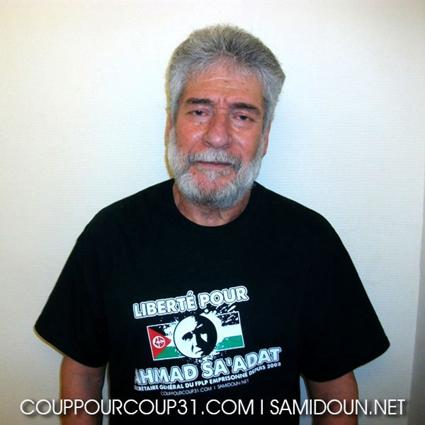After spending four decades in French prisons, Georges Abdallah, a Lebanese militant and political figure, is set to return to his homeland after his release. Abdallah, a controversial figure long held captive in France, has been at the center of numerous legal and diplomatic debates surrounding his detention. His impending return marks the end of a protracted chapter that has drawn attention from activists, governments, and the international community alike.
Georges Abdallah’s Release and Its Impact on Franco-Lebanese Relations
The release of Georges Abdallah after more than four decades in French prisons marks a highly sensitive moment for Franco-Lebanese relations. Abdallah, a controversial figure convicted for his association with militant activities in the 1980s, has long been a symbol of unresolved tensions between France’s justice system and Lebanese political factions. His departure is expected to reignite debates on sovereignty, justice, and the legacy of conflict in Lebanon, even as France maintains a cautious stance regarding the diplomatic repercussions.
Experts suggest that Abdallah’s return could influence bilateral discussions on the following fronts:
- Diplomatic Engagement: Lebanon may push for greater leverage in ongoing talks with France, leveraging Abdallah’s release as a goodwill gesture.
- Security Cooperation: Both nations will need to navigate complex security considerations, especially given Abdallah’s past affiliations.
- Public Opinion: The move has polarized opinions in both countries, potentially affecting political stability and cross-border community relations.
| Aspect | Potential Impact | Timeframe |
|---|---|---|
| Diplomatic Relations | Heightened negotiations and potential tensions | Short to Mid-term |
| Security Concerns | Increased intelligence collaboration needs | Ongoing |
| Public Perception | Polarization within communities | Immediate |
Legal and Political Controversies Surrounding Abdallah’s Imprisonment
Georges Abdallah’s prolonged detention has sparked a multifaceted debate that intertwines legal principles with geopolitical tensions. French authorities consistently maintained that Abdallah’s release posed a threat to public order, citing his alleged involvement in acts of terrorism during the 1980s. Conversely, his advocates argue that the judicial process has been unduly politicized, spotlighting concerns about the use of detention as an instrument of political leverage rather than strict application of criminal justice. This tug-of-war has often ignited protests both in France and Lebanon, rallying for Abdallah’s repatriation as a symbol of resistance and human rights advocacy.
The controversy is further complicated by the international dimension, where diplomatic pressures and ideological alignments have influenced decision-making processes. Key elements fueling this debate include:
- Prolonged bail denials despite repeated parole requests highlighting potential legal irregularities.
- Impact on Franco-Lebanese relations, where Abdallah’s case is viewed as a litmus test for political cooperation.
- Civil society involvement, with human rights organizations labeling his incarceration as an example of political imprisonment.
| Aspect | Position | Implications | |||||||
|---|---|---|---|---|---|---|---|---|---|
| French Judiciary | Public safety concern | Continued incarceration | |||||||
| Lebanese Supporters | Recommendations for Reintegration and Regional Stability Following Abdallah’s Return
To ensure a smooth reintegration of Georges Abdallah into Lebanese society and to safeguard regional stability, authorities and civil society organizations must collaborate closely. Initiatives should focus on creating supportive environments that address potential tensions stemming from his return. This includes establishing dialogue platforms that bring together community leaders, political representatives, and youth groups to foster mutual understanding and prevent polarization. Moreover, transparent communication strategies are essential to mitigate misinformation and promote a narrative centered on reconciliation rather than division. Strategic measures can also enhance regional security during this sensitive period. These include:
To ConcludeAs Georges Abdallah prepares to return to Lebanon after more than four decades of imprisonment in France, his case continues to evoke strong reactions on both sides of the Mediterranean. While supporters hail his release as a long-overdue act of justice, critics remain concerned about the implications for French-Lebanese relations and regional security. Abdallah’s homecoming marks the end of a contentious chapter, but the debates surrounding his legacy and the broader political context are far from over. |




